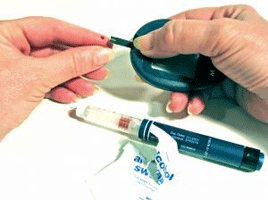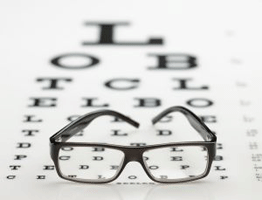As more of our population become obese and overweight, obesity diseases become much more prevalent. Diabetes is one such disease, and here I explain what it is, why it affects the overweight, symptoms and prevention.
What is it?
Obesity can lead to diabetes, specifically type 2 diabetes. Type 2 diabetes, once called adult-onset and non-insulin dependent diabetes, is a chronic condition affecting the way your body metabolizes glucose/sugar. With type 2 diabetes, your body still produces insulin (a hormone that regulates the absorption of sugar into your cells), but your body has either become resistant to its effects or you can not produce enough insulin to maintain a normal glucose level. Left uncontrolled, the consequences of type 2 diabetes can be life threatening.
Why is it affected by obesity/overweight?
Obesity is a culprit to type 2 diabetes. With obesity, you are consuming calories beyond your caloric needs, therefore having more glucose in your body that your insulin is incapable of moving it into your cells. There is plenty of evidence showing that excessive abdominal fat and physical inactivity (both seen in obesity) is a major precursor to type 2 diabetes.
What are the symptoms?
Below is a list found on the Mayo Clinic website of a few things to look for:
- Increased thirst and frequent urination. As excess sugar builds up in your bloodstream, fluid is pulled from your tissues. This may leave you thirsty, resulting in you drinking and urinating more than usual.
- Extreme hunger. Without enough insulin to move sugar into your cells, your muscles and organs become depleted of energy. This triggers intense hunger that may persist even after you eat.

- Weight loss. Despite eating more than usual to relieve your constant hunger, you may begin to lose weight. Because without the energy sugar supplies your muscle tissues and fat stores may simply shrink.
- Fatigue. If your cells are deprived of sugar, you may become tired and irritable.
- Blurred vision. If your blood sugar level is too high, fluid may be pulled from your tissues — including the lenses of your eyes. This may affect your ability to focus.
- Slow-healing sores or frequent infections. Type 2 diabetes affects your ability to heal and fight infections. Bladder and vaginal infections can be a particular problem for women.
What can you do to prevent it?
There is no cure for type 2 diabetes, but there is plenty you can do to manage or prevent it.
- Eat healthy foods and practice portion control
- Make physical activity part of your daily routine
- Maintain a healthy weight
If diet and exercise alone are not enough, you will need to see a doctor because medication may be necessary to treat diabetes.
